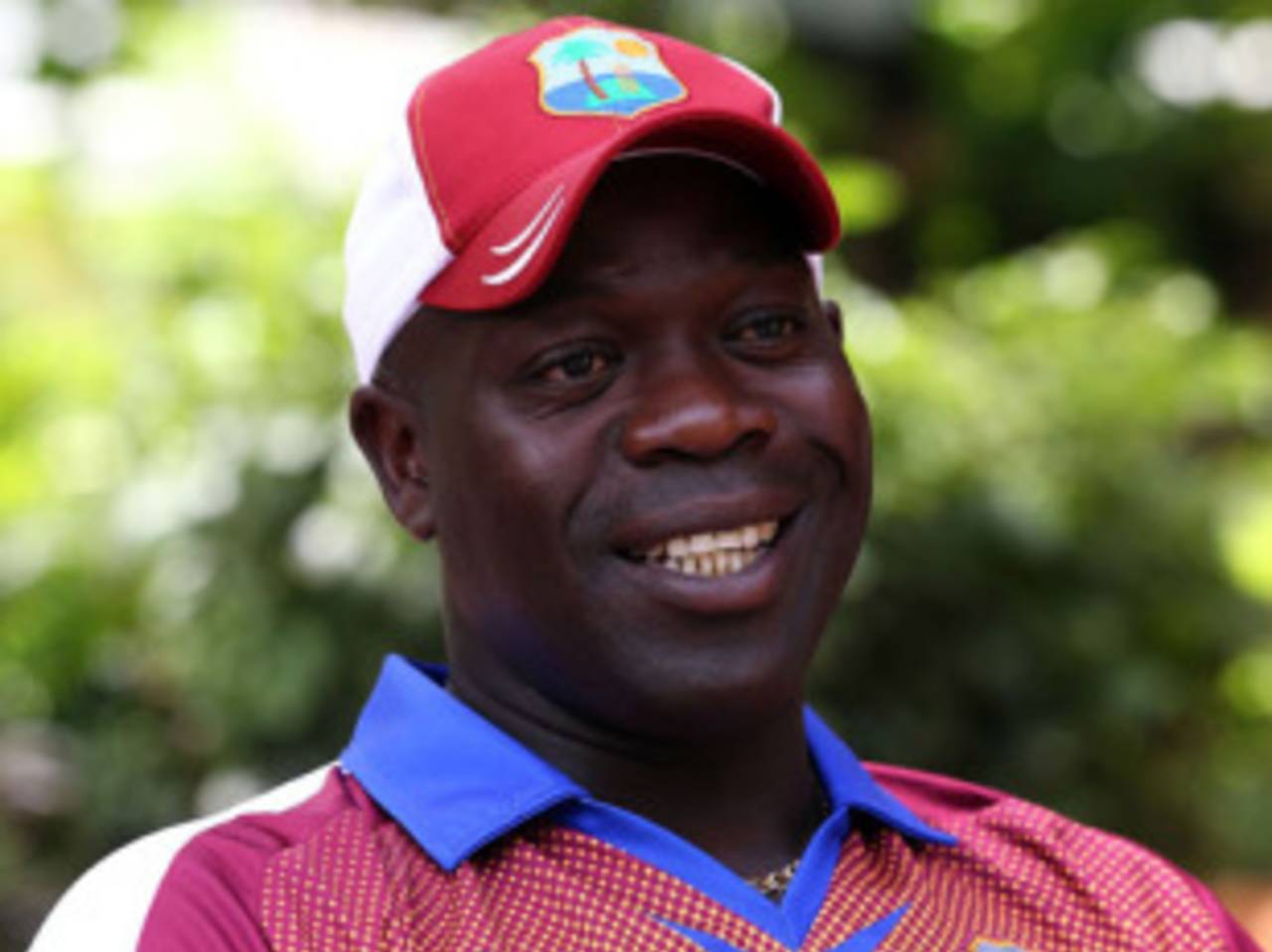Gibson fined for criticism of DRS use
West Indies coach Ottis Gibson has been fined 20% of his match fee for criticising the lack of consistency in the use of the Decision Review System (DRS)
ESPNcricinfo staff
Apr 20, 2012, 6:42 PM

Ottis Gibson's comments did not go down well with the umpires and the match referee • Getty Images
West Indies coach Ottis Gibson has been fined 20% of his match fee for criticising the lack of consistency in the use of the DRS.
His comments, made during the second Test between West Indies and Australia in Port-of-Spain, were found to be breaching the ICC Code of Conduct and he was charged with a Level 1 offence relating to inappropriate public comment, to which Gibson pleaded guilty.
"In the pre-series meetings it was agreed that players and coaches should not engage in negative media comments," Jeff Crowe, the ICC match referee, said. "Ottis accepts that he overstepped the mark during the game and has now accepted his sanction.
"The incident took place on Tuesday when, during the post-third day's play media briefing, Gibson challenged the efficacy of the Decision Review System (DRS) and its implementation by the match officials."
Hot Spot is not being used in the ongoing three-Test series for budgetary reasons - as it was not in the recent England-Sri Lanka contest - and its absence meant several close replays remained inconclusive, leaving decisions to be made based on the umpire's interpretation.
"I can't say what I really want to say about the DRS because the ICC will sack me or ban me or whatever," Gibson had said. "If the ICC is going to use DRS I think they should use all the technology and I think if we haven't got all the technology we shouldn't use it at all."
One contentious incident involved Michael Clarke in the first Test in Barbados, where he was given out caught-behind but the decision was overturned upon review, though Gibson argued there wasn't sufficient evidence in the replay to suggest the original decision was wrong.
"Over the course of the two Test matches, the way that it's panned out, the decisions that have gone against us," he said. "In Barbados we had a man out [Michael Clarke] and then he was given not out with the use of the cameras and so on. To us sitting watching it, we didn't see anything conclusive to say that he had hit it or not hit it so therefore we thought that the decision the umpire made in the first instance should have stood instead of being overruled."
The charge against Gibson was laid by on-field umpires Marais Erasmus and Ian Gould, and third umpire Tony Hill.